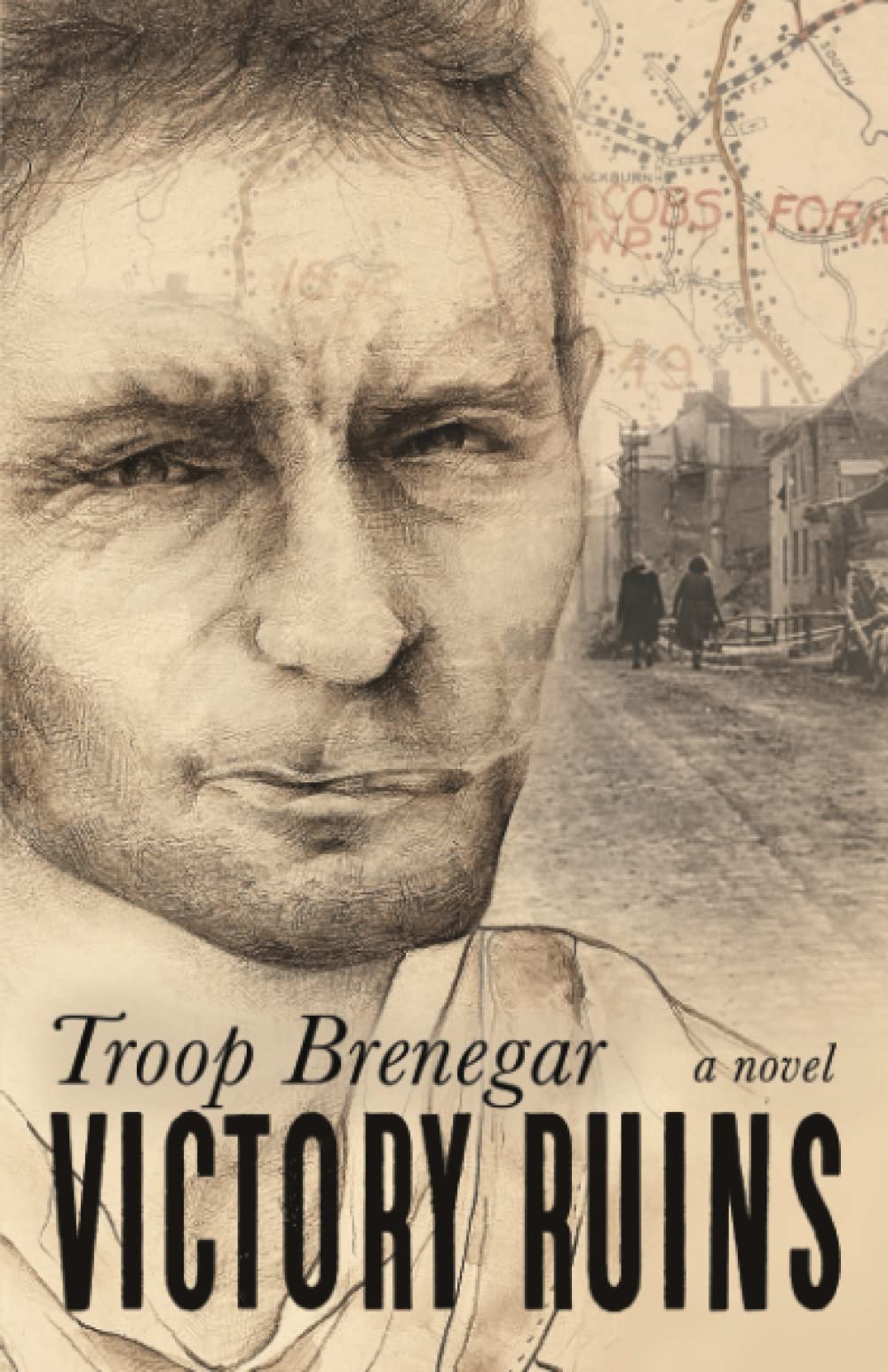A Review of Victory Ruins (Amazon Digital Services, 2022) by Troop Brenegar.
“Lee in the Mountains” by Donald Davidson culminates in the resonant utterance, “Unto all generations of the faithful heart.” These words also served as inspiration for the title of an elusive tome on Southern literature by M.E. Bradford. With a nod to this timeless phrase, Troop Brenegar’s Victory Ruins is offered to those loyal generations. His dedication is followed by a quote from Stark Young’s “Not In Memoriam, But In Defense” in I’ll Take My Stand. As we like to say on Twitter, Troop is Our Guy.
A raw, compelling tale of tenacity against the relentless tide of loss, Victory Ruins poses a poignant question: can we remain rooted amidst the tempests of progress? Set in Catawba County, North Carolina, the story unfolds in three sections—Peace, War, and Victory.
Peace: In June 1940, we find Wade and Arlen, father and son, engaged in a cold war with an Ag Extension Agent—the type of person Davidson called “calculators.” These spreadsheet apostles of scientific farming loved to share their gospel with the heathen—the inefficient “backward” yeoman. You see, Agent Ag Expert knows what’s best for you and yours, especially your land. Trust the plan and get with the times. Ditch the mules, buy a tractor. No cash, no problem. A mortgage is what you need.
The reader will not only detect the ripples of Davidson’s inspiration throughout the narrative but will also discern Andrew Lytle’s echoes as well, especially “The Hind Tit” and “The Small Farm Secures the State.” Lytle writes of the Southern farmer, standing tall, unwavering, self-reliant—how he’s a target of the specialists and reformers. Some knew, without its backbone, the South could no longer stand.
War: The farm’s remoteness couldn’t keep the world at bay. From across the pond came rumors of war. Deciding time was at hand, and “a man’s duty ain’t a terrible thing.” Compelled to a war unbidden, Arlen Breckenridge, steps forth, enlisting in the 30th Infantry Division, driven by duty towards kin and land.
Initially made of National Guard units from the Carolinas and Tennessee, the 30th Infantry Division, coined “the Old Hickory,” became a significant force in WWI. Rarely seen in other WWI divisions, 95% of its members had American-born parents. It had more North Carolinians and won more Medals of Honor than any other division.
In WWII, the Old Hickory was activated on September 16, 1940—seeing the elephant in Normandy on June 11, 1944. They fought through a grueling 282 days of combat, including the Battle of the Bulge, culminating in a heavy toll of 18,446 casualties.
The boundary between survival and victory is tight as a hangman’s knot. Arlen walked it, all across war-ravaged expanses of Europe. He craves the sweet reunion with his familial hearth. “He had been on the line longer than anyone else. He had seen more, killed more, had more close calls than anyone else. And he came back with a few scratches and a heart full of hurt, but nothing else. They would take him back, all those folks at home. He would fit right back in again, doing what he had always done.”
Victory: A warrior’s return is a dance as nuanced as a whiskey-fueled fiddle playing ‘neath a Carolina moon, and upon Arlen’s homecoming, he immediately intuits the tune ain’t quite right. The land, weather, and animals are no respecters of heroes. Can he live by the old codes in this strange new field that victory has plowed? Or must he yield to the encroaching tides that he and his bloodline have held off for countless generations? I suggest buying the book for an answer.







Post Covid: “the tune aint quite right”.